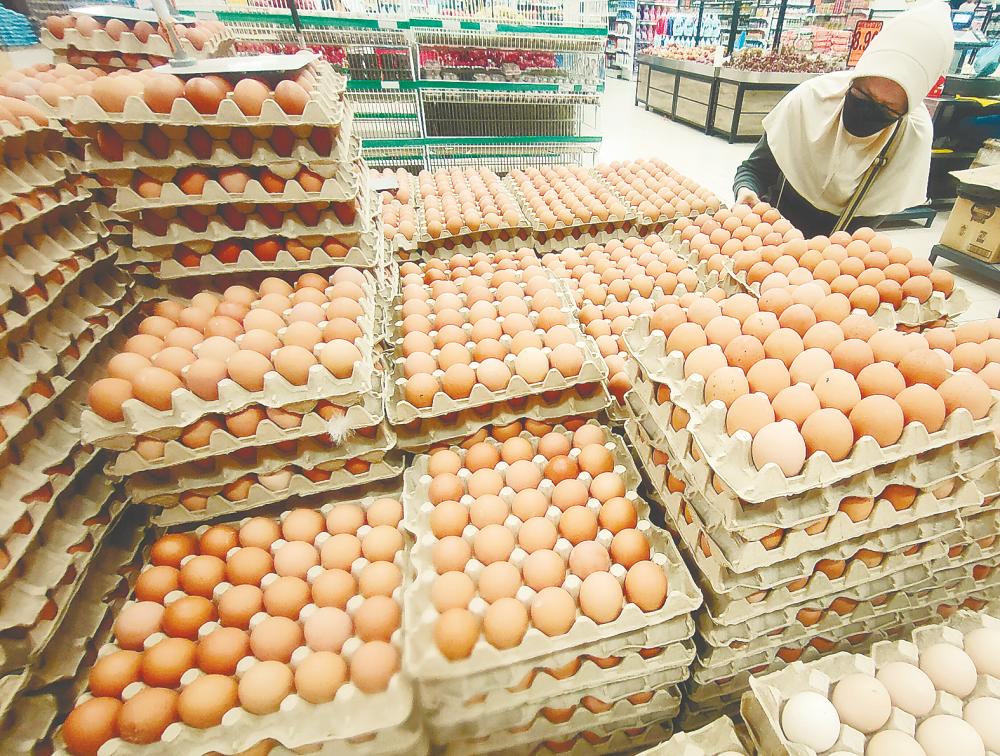PETALING JAYA: The Federation of Malaysian Consumers Associations has urged the government to implement a more flexible or targeted price control system to ensure the needy continue to receive assistance.
Its CEO Saravanan Thambirajah said the removal of subsidies must be done such that it does not adversely affect consumers in the lower income groups.
“We understand that the provision of subsidies is a temporary measure which ensures that the prices of essential goods remain affordable, especially during supply shortages. However, removing it should be conditional upon having an ample supply of chicken eggs with stable market prices,” he said.
On Wednesday, Agriculture and Food Security Minister Datuk Seri Mohamad Sabu announced that the government will review the subsidies for chicken eggs in grades A, B and C if supply becomes stable and recovers from the current shortage.
He said the decision to end the egg subsidy is being considered based on the success of ending the chicken subsidy which saved RM100 million a month and allowed the sum to be used to develop more critical areas of the agro-food sector.
Last year, the government allocated RM927 million for chicken egg subsidies, while in June Prime Minister Datuk Seri Anwar Ibrahim announced a three sen reduction in the retail price of grades A, B and C chicken eggs nationwide.
Saravanan said if the government feels that it is time to end the subsidies, it must ensure that the supply and prices do not result in drastic changes that could affect the cost of living.
“Additionally, the government should look into strengthening the supply chain and improving local productivity to ensure a stable supply of eggs in the long term without the subsidies,” he said.
Civil servant Irwan Effendie Mohammad Shukri, 36, said while his household does not consume a large number of eggs, now might not be the best time to end subsidies given the current economic challenges.
Instead, he suggested the government prioritise increasing the people’s income first.
“If incomes rise, the public would be better equipped to manage the withdrawal of subsidies on essential goods such as eggs and other raw materials.
“The government should carefully evaluate the situation before finalising any decision. Precautionary measures should be taken to ensure that the public isn’t burdened too heavily by rising costs.”
Irwan Effendie said the move to remove subsidies will significantly impact traders who often have to adjust their prices in response to increased costs.
This in turn will lead to higher prices for consumers, and affect the overall demand for goods.
“When traders raise prices due to increased costs, they tend to adjust the prices of everything, not just eggs but items made with it. This means the community at large will feel the impact as food prices in general will likely rise.”
Canteen operator Siti Hapsah Karim, 45, said the possible removal of egg subsidies could be a challenge for her since they are essential goods.
Price increases on such basic ingredients would make it harder for her to keep food items affordable.
“Removing subsidies naturally puts pressure on my business, as customers are already cautious with their spending due to the rising cost of living, so even a small price increase can affect demand.”
Siti Hapsah said the situation presents a dilemma as she must balance rising costs with maintaining affordable prices for her customers in a challenging economic environment.
She urged the government to think about ways to help consumers and traders ease some of their challenges, and that businesses like hers need help to succeed by providing affordable choices for customers.









